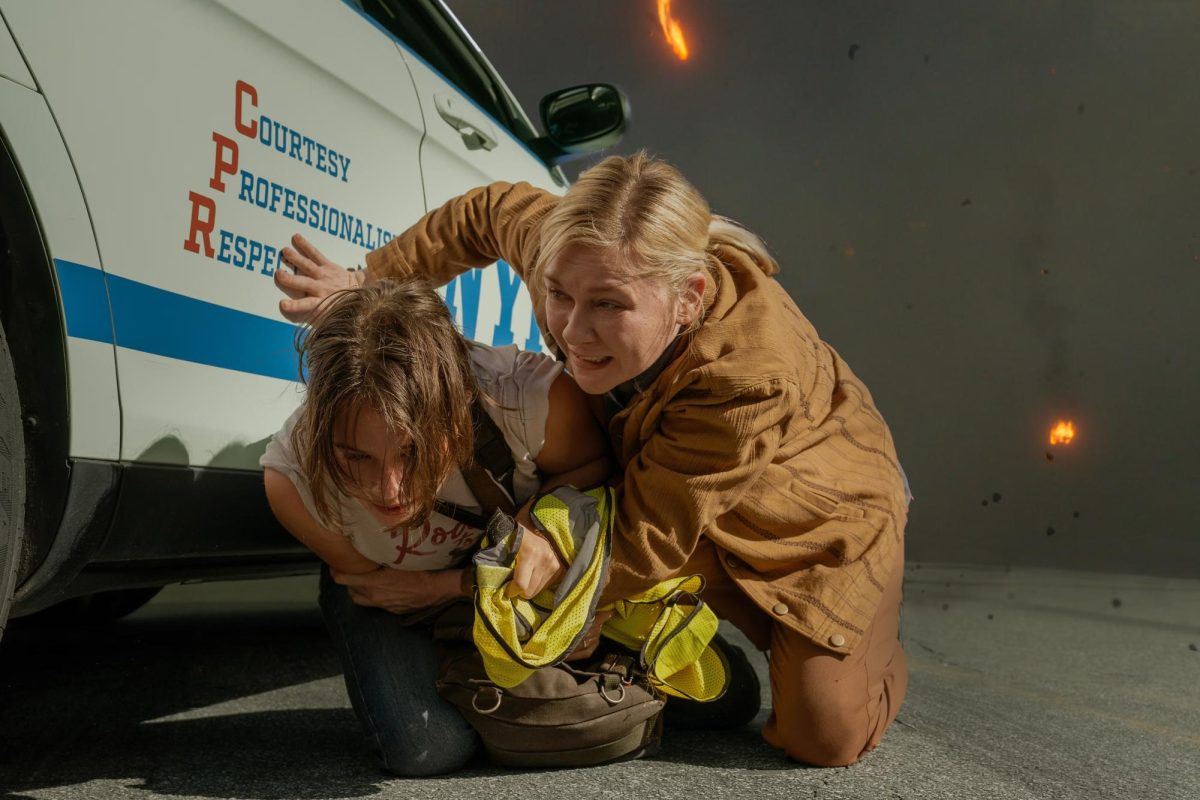Alex Garland’s “Civil War” spends two hours attempting to be so neutral it ends up not saying much at all.
Garland ignores and outright refuses to explain much about the war in favor of making an apolitical war movie, which sort of feels like an impossible, if not stupid, task. Garland said he wanted this to be a true ‘anti-war’ film, and so we follow a few desensitized (or soon to be desensitized) photojournalists through an “Apocalypse Now” meets a sleepy indie road-trip adventure occasionally interrupted with the lamest “Call of Duty” level you’ve ever seen. Garland makes sure the scenes of war have the loudest gunshots you’ve ever heard to try and elicit some response out of you.
It’s attempt to be apolitical could maybe be an inspired choice if Garland didn’t want to have his cake and eat it too. The film is full of references to “Antifa massacres” and “Portland Maoists” and a Texas-California alliance and the New-York Times being gone and Canadian dollars being worth more than US dollars. Some of these things are so silly it seems like Garland would be better off diving straight into a parody film.
The characters arcs (if you can even call them that) range from Kirsten Dunst’s Lee Smith going from hating Jessie (Cailee Spaeny) to liking her, or Jessie going from not being able to take a photo because the war scares her too much to running onto the front lines and risking everyone’s lives for whatever shot she wants. These arcs are generic and often manifest in very dumb ways and the characters are too broad and empty to ever sell them. Spaeny would be my standout just because she’s able to mostly convince me despite the writing issues.
A brief scene with the excellent (as always) Jesse Plemons as a gun-wielding, MAGA-esque caricature is one of the only effective ones in the movie for me. It’s mostly due to Plemons elevating some truly awful material (“What kind of American are you?” is just one of the many lines he’s forced to sell) into a tension-filled few minutes.
All of this is in service of the most basic idea ever: that war is brutal and ugly and bad and it doesn’t really matter what side you’re on or where you come from (and also that war photojournalists are simultaneously noble and important and also very stupid). Even these basic ideas are conveyed so poorly and blandly throughout that I ended up bored even by a dumb-guy action set piece that follows an army storming the capitol on a mission to take out Nick Offerman as a Trump stand-in, something that I would love if in the hands of a better director (who perhaps had a more tasteless-but-fun instead of safe take on this material).
Garland proves himself to be a poor stager of shots throughout. Everything is shot in shallow-focus and takes up so little of the screen, a new trend that makes it perfect to crop and share scenes on TikTok but leaves so much ugly negative space of nothing in the frame.
The soundtrack is baffling as well, a series of needle-drops from Garland’s Spotify playlist that seem never fit and often even interrupt the flow of scenes.
Making a movie is inherently a political act, an expression of one’s beliefs based on the world around them. I think it’s fair to say that all good movies are making a statement of some kind. By making “Civil War” an apolitical work, Garland has revealed his trick: he’s making a movie with no point, no true perspective or stance. There’s nothing to be gained from watching this cynical work whose sole purpose seems to be to show that America will inevitably fall into this state of chaos and horror, and there’s nothing we can do about it. There’s so much potential in a premise like this but Garland is more interesting in making a movie about nothing.





Whoever Wrote this needs an Arts Education Desperately • Sep 8, 2024 at 9:05 pm
Congratulations on not understanding what you watched and being incredibly mad about it lmao